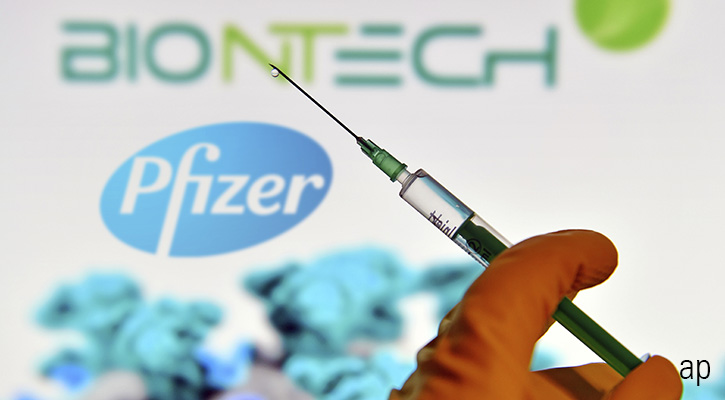David Harrell: I'm David Harrell, editor of Morningstar DividendInvestor. Like many of you, I'm interested in stocks with durable dividends. So, there's a recent piece of research from Morningstar's healthcare analysts about biopharma firms that caught my eye, in part because the title included the phrase "secure dividend growth." So, I've invited the lead author of that report to join me to talk about that research today.
Damien, thanks for being here.
Damien Conover: Yeah, great to be here. Thanks for having me.
Harrell: You've been covering pharmaceuticals for a long time for Morningstar. How long has it been now?
Conover: Yeah, it's been quite a while. It's close to 15 years, and it's been a really interesting time period. I'd say the one consistent theme over that time period is innovation. That innovation focus for biopharma has evolved. It used to be more cardiometabolic drugs, and now it's more oncology drugs. But it's been a really interesting time period for these stocks and the whole industry as a whole.
Harrell: That's great. And you also lead the team of healthcare analysts from Morningstar, correct?
Conover: That's right. Yeah. So, while I have personal responsibility for the large-cap pharmaceutical stocks, I also oversee our entire equity research for healthcare, which is really important. Because when you think about healthcare spending, it really hits a lot of different buckets. And when you have a good overview on what's happening in devices, what's happening in tools, it gives you good perspective on what's happening in the biopharmaceutical space, and it can really lead to different valuations across the spectrum. And to have that context in mind, I think it really helps us get to right and accurate valuations.
Harrell: Perfect. Now, one thing I wanted to jump into was this idea of economic moats and how they relate to dividends. So, almost every firm that you highlighted in your report currently has a wide moat rating from Morningstar analysts, which by definition means that they believe the firms have competitive advantages that can last for at least 20 years, in order to garner that wide moat rating. Now, this might seem like a paradox to some because what's driving, or appears to be driving, the moats of many of these firms is the patent protection for their products, yet patent protection only lasts 20 years and by the time a new drug gets to market, it might have far less than 20 years of patent protection. So, what's really sustaining the moats for these firms? Does it come down to the pipeline of new products they're developing?
Conover: Yeah, that's a really excellent question. And that concept of moat really does speak to duration of excess returns. And what's interesting about the large-cap pharmaceutical stocks is really their portfolio of assets because, you're absolutely right, you have patents that are going to run out. And so, for a large-cap pharmaceutical company to have a wide moat, they really need a portfolio of products that are going to be running out at different periods of times, at different geographies, which enables the firm to have ongoing cash flows and high excess returns over a long period of time.
And I think one of the main things that really separates a wide-moat pharmaceutical firm to maybe a startup biotech firm is a startup biotech firm usually doesn't have any products on the market, may only have one product marketed, and it's really dependent on one or two assets, whereas large-cap pharmaceutical firms, they have a huge array of different products that should sustain long-term competitive advantages.
Harrell: I know you have a very good perspective on the dividends of this industry. And one thing that stood out to me in your report was just how few dividend cuts we've seen over the past decade or so. I think you had two examples that you mentioned, one was Schering-Plough--after loss of patent protection for one of its products, cut its dividend--and then back in 2009, Pfizer PFE reduced its dividend in order to fund an acquisition. But generally speaking, why have we seen such secure dividend payments within this industry?
Conover: Yeah, it's a great question. When you think about dividends within healthcare, most of the dividends are going to be coming from biopharma. And to your point, a lot of these dividends are very secure, and we anticipate the large-cap pharmaceutical stocks to be very secure in their payments going forward. And I'd say it really ties back to that economic moat that we were just talking about, this concept of having a portfolio of drugs that really enables strong cash flows and really more predictability than what you would normally think around drug companies. You think about, you know, hey, who knows if a clinical trial will work or not. But if you have enough shots on goal, you start to see a diversification of that risk, and it becomes a very steady stream of cash that is redeployed in a lot of different ways--and one of them is dividends. And the way the structure is really set up for pharmaceutical firms is: They've got an abundance of cash to fund R&D and a whole host of other things, and it still enables them to fund a high dividend payout ratio--close to 50%--that we think is very secure over the next 10 years.
Harrell: You were mentioning dividends going forward. So, within your report, you also had your dividend growth projections for the firms under coverage, and for the most part, what are you seeing? Is this an area of the market that investors can expect to see growing payouts on an ongoing basis?
Conover: Yeah, it's a great question. I think this is a great area for investors to look at for two reasons. One, I think a lot of these stocks look undervalued. So, you have some capital appreciation there. And then, two, bringing it back to the dividend: I think the dividend growth for these firms is going to track pretty close to earnings growth. So, I think the dividend payout ratio is probably going to stay pretty static, close to that 50% that the industry on average is paying out. But I think as earnings grow, the dividends will probably grow along with it. So, as an investor, you should be really looking for capital appreciation and dividend yield.
Harrell: But there was one exception among your coverage list, and that was GlaxoSmithKline GSK, where I believe you anticipate a dividend cut in 2022.
Conover: Correct. Yeah. So, what's happening in Glaxo is a bit different than the rest of the universe. So, what we're seeing with Glaxo is a very likely signal that a dividend cut will be coming, close to 30%-plus. So, it's a pretty significant dividend cut. And one of the main triggering events here is Glaxo is breaking itself up. It's divesting its consumer health group. And because of that, the dynamics become a little bit different on paying out a dividend. That combined with what had been a little bit lower innovation for this firm. And if you look at the history of GSK, they've had 0% growth in their dividend for almost a decade. And if you see that for a pharmaceutical firm, that should be a trigger for an investor--hey, how secure is this dividend? And for most of the other pharmaceutical firms we're seeing growing dividends.
The only other name I'd pull out is AstraZeneca (AZN). If you look back at AstraZeneca, they've had close to a decade of static dividends. But I think the big difference here between GlaxoSmithKline and AstraZeneca is AstraZeneca is incredibly innovative, really bringing out a lot of great drugs, their growth rate is going to really accelerate, and we're going to see that dividend grow in time.
Harrell: When you published your report, you highlighted two stocks that were your top picks within the industry at the time. Now, that was back in October. So, I just wanted to check in: Are those two names still your top picks within the industry?
Conover: Yes, absolutely. So, two of our top picks were Roche (RHHBY) and Merck (MRK). Both companies still look undervalued to us. Just to encapsulate main drivers for those: Roche is a firm that is really well-positioned in oncology, and that's where drug-pricing power is really holding up extremely well. The other thing we really like about Roche that's a little bit differentiated is they have a big diagnostic arm. And what we're seeing in drug development is the connecting of diagnostics to very specific drugs. Roche is very well-positioned there. We think the market is underappreciating that.
The other firm we really like is Merck. Merck has a key product called Keytruda. It's an immuno-oncology drug used for a lot of different cancers including lung cancer, one of the biggest indications out there. Now, this drug doesn't lose patent protection until 2028 to 2032 depending on the geography, and that means there's a lot of growth potential for Merck going forward. And that's not just growth on the top-line, but this is a very high-margin product. So, you're going to see some amplified growth on the bottom line. So, Roche and Merck, two companies that we think are very well positioned.
Harrell: That's great. And are there any other names in this space that you think offer a good opportunity currently for income-focused investors who are looking for income and dividend growth?
Conover: Sure. So, one name that comes up a lot to us is AbbVie (ABBV). So, AbbVie is trading closer to our fair value but is paying out a very high yield. And a question we get a lot is: How secure is that dividend? And the main reason we get that question is AbbVie is facing a major patent loss with Humira coming up. There's a huge molecule for them. The analysis we've done looks like the dividend will be secure. The dividend payout ratio will probably grow over the next few years, but they have enough other products that are growing very well that should support that dividend. So, if you're looking for a stock that has a nice yield that we think is secure, AbbVie would be a name we'd highlight.
Harrell: Great. All right. Well, Damien, thanks for sharing your insights. It's been great having you here.
Conover: Absolutely. It's been good to be here with you.




















